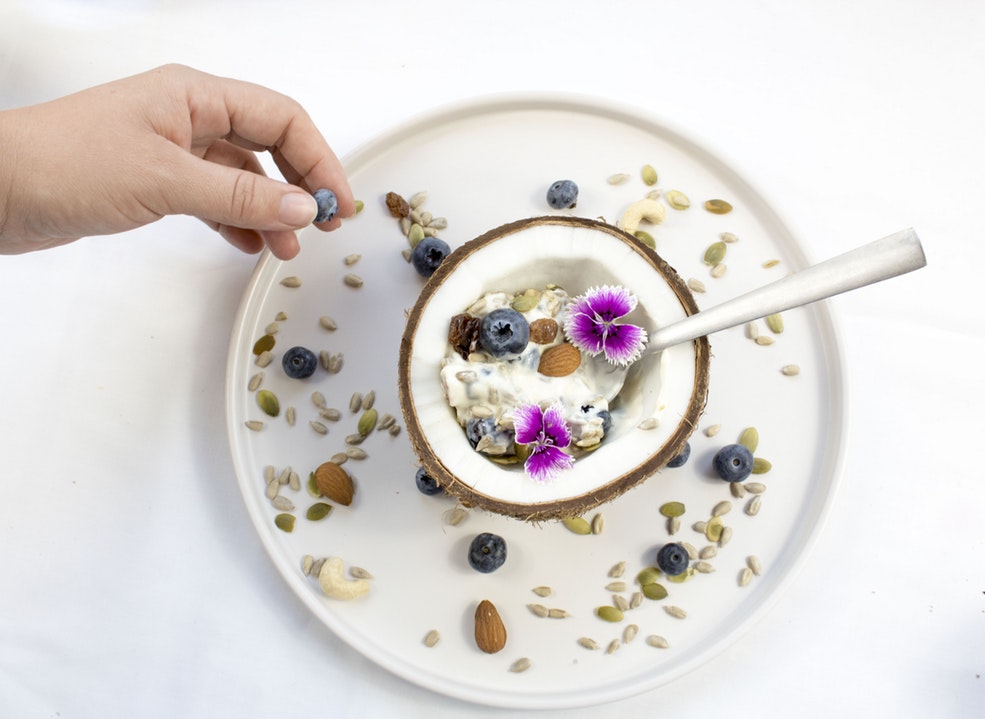
Body + Mind is reader-supported. We may earn an affiliate commission when you buy through some of the links on our site.
Whether you’re strolling through the grocery store or raiding your kitchen’s pantry, you’re bound to run into dairy. Lactose, which is linked to the milk of mammals, is commonly found in your favorite cheese, ice cream and more. If you can’t enjoy these foods without feeling bad afterward, you may be intolerant to this group of food. It’s time to read up on the symptoms of lactose intolerance in women.
Are you unsure if you’re lactose intolerant or not? Here’s a list of five common symptoms of lactose intolerance in women.
Imagine spending all dinner thinking about your favorite flavor of Ben & Jerry’s. When you finally get to dig in, your taste buds experience a sensory overload. Unfortunately, your feelings of delight are short-lived when your stomach begins to experience sharp pain and cramping. If this sounds familiar, you may be lactose intolerant.
Stomach cramps are one of the most common symptoms of lactose intolerance in women. Some people lack the enzymes necessary to break down the lactose in dairy foods.
If you’re intolerant to dairy, enjoying a meal free of milk, cheese and other dairy products can significantly reduce the amount of nausea you experience daily. Fortunately, there are myriad dairy-free alternatives you can enjoy instead — so you won’t need to choose between stomachaches and your favorite dish or treat.
Do you ever find yourself moving your belt down a notch after eating a cheesy meal? Maybe you notice your pants fit a bit tighter after you chug down your morning glass of milk. If this sounds like you, you’re not alone. For some women, a common cause of bloating is ingesting dairy.
When you find your stomach feeling fuller — even hours after enjoying your last meal — it may be wise to investigate what exactly you consumed. Women who are lactose intolerant experience bloating because their gut stretches in reaction to the increased amount of gas sitting in their stomachs. If you find that bloating typically occurs after eating dairy, it may be time to cut certain foods out of your diet.
We’ve all had the stomach bug before. While it’s tolerable to deal with for a few days on end when a random illness strikes, long-term nausea can be much more debilitating. If you experience an unpleasant feeling in your stomach or feel the urge to vomit often, you may have lactose intolerance — especially if these feelings manifest after you indulge in dairy products.
Fortunately, forgoing dairy doesn’t mean that you have to give up on tasty meals. Many women diagnosed with lactose intolerance find relief when indulging in vegetarian meals. Try scouring the internet for vegetarian dinner recipes you can easily prepare. Not only will you get to try something new, but you may also find a much-needed sense of everyday nausea relief.
Beans are notoriously known for causing gas, but did you know it’s also pretty common for those experiencing lactose intolerance, too?
Gas is one of those symptoms of lactose intolerance in women that’s both pesky and frustrating. Since those with this condition often don’t produce enough of the lactase enzyme — which is necessary to break down lactose in the gut — it remains undigested. So instead of running to your local pharmacy the next time you grab a bite to eat with your friends, consider ordering a dairy-free, vegetarian option instead.
We’ve all experienced the uncomfortable disruption of running to the bathroom after enjoying a fun night out with family and friends. However, if you find these episodes are a common occurrence, you may want to re-evaluate your diet.
Diarrhea is also notoriously common for those with IBS. If you’re experiencing diarrhea as a primary symptom, consider going a week without dairy in your diet to determine your root problem. If it seems to resolve, it’s likely to be the culprit. If you experience diarrhea or vomiting regularly, it’s always wise to check in with your primary care doctor first. With their expertise, you can develop a wellness plan that best suits your needs.
Many women with lactose intolerance experience a decrease in gastrointestinal upsets when pursuing an alternative diet free of dairy ingredients.
Fortunately, being lactose intolerant doesn’t mean you have to sacrifice a healthy and delicious diet. Be sure to connect with a dietician to see how you can cut dairy foods out of your wellness routine by enjoying safer alternatives instead. Consider following a raw diet regimen, or any other plan that’s rich in fiber, nutrients and vitamins.
Since symptoms vary from person to person, you may experience lactose intolerance in a unique way. Experiment with the foods you eat daily, and swap out dairy for alternatives. You’ll have the perfect excuse to indulge in new nutrients while potentially enjoying the relief you deserve.
Your email address will only be used to send you our newsletter, and at any time you may unsubscribe. For more information, see our Privacy Policy.